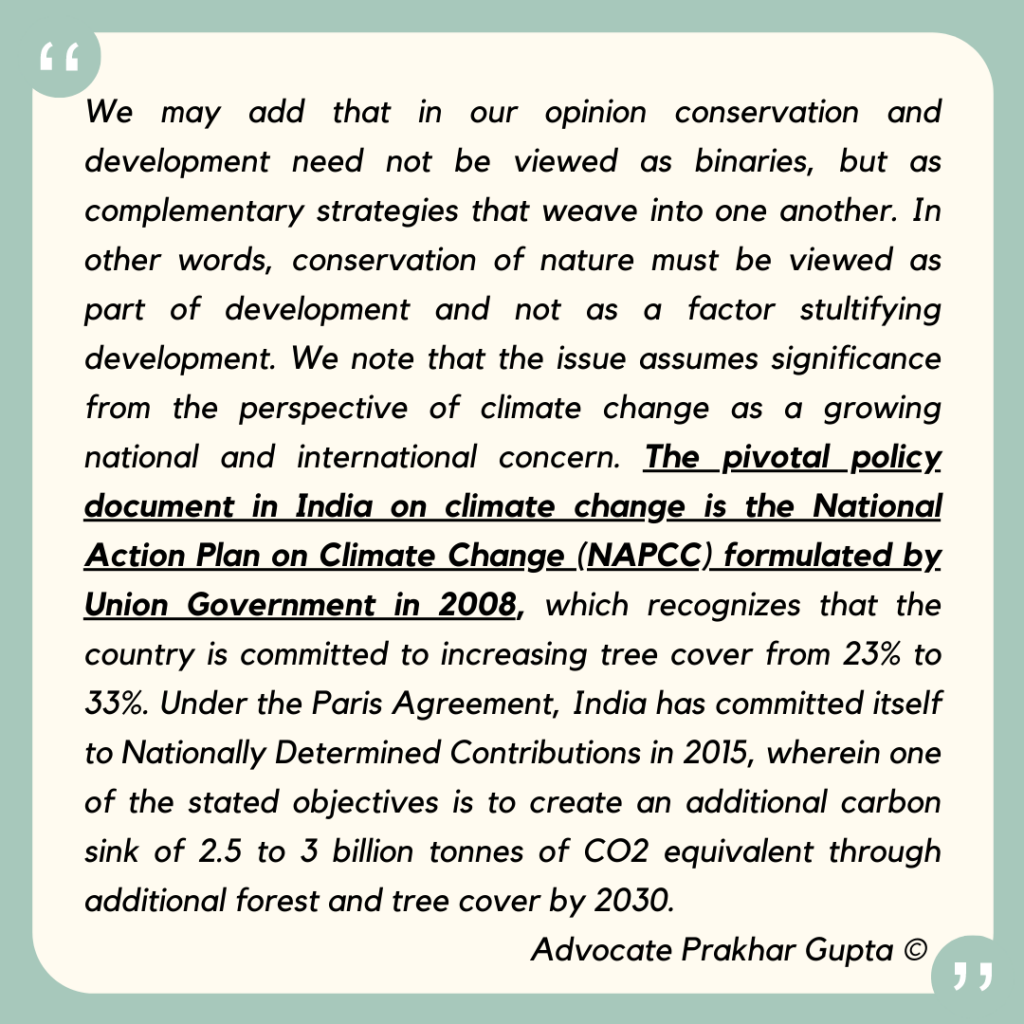Hon’ble Supreme Court of India on right to health, and commitment of Government of India towards afforestation. The right to clean and healthy environment has been recognized as the fundamental right under Article 21 of the Constitution of India. Article 48-A imposes duty upon the State to endeavour to protect and improve the environment and safeguard the forests and wildlife of the Country. In addition to this, India is also a party to international treaties, agreements and conferences and has committed itself to sustainable development and growth. This legal framework indicates that sustainable development must remain at the heart of any development policy implemented by the state. It is essential to strike the right balance between environmental conservation and protection on one hand, and the right to development on the other, while articulating the doctrine of sustainable development.We may add that in our opinion conservation and development need not be viewed as binaries, but as complementary strategies that weave into one another. In other words, conservation of nature must be viewed as part of development and not as a factor stultifying development. We note that the issue assumes significance from the perspective of climate change as a growing national and international concern. The pivotal policy document in India on climate change is the National Action Plan on Climate Change (NAPCC) formulated by Union Government in 2008, which recognizes that the country is committed to increasing tree cover from 23% to 33%. Under the Paris Agreement, India has committed itself to Nationally Determined Contributions in 2015, wherein one of the stated objectives is to create an additional carbon sink of 2.5 to 3 billion tonnes of CO2 equivalent through additional forest and tree cover by 2030.
For More Information Contact Advocate Prakhar Gupta


